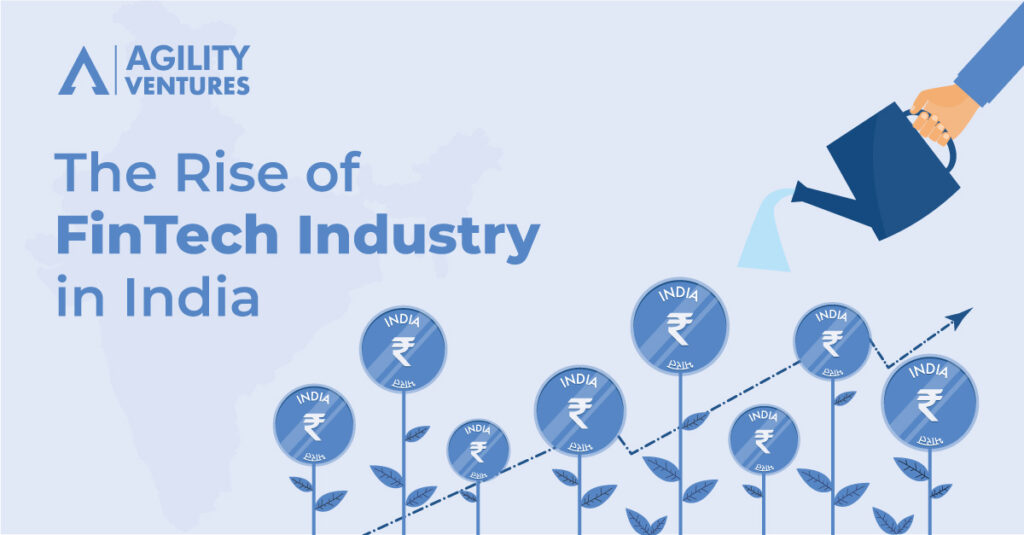The etymology of FinTech rises from “financial” and “technology”. This industry aims to incorporate technology to improve, enhance and automate financial services and processes. The use of mobile phones to make cashless payments and transactions; borrowing, lending, and investing money; and cryptocurrency are examples of using technology to make financial services more accessible and available to people.
The era of FinTech
As the world becomes increasingly digitised, the FinTech space is expanding exponentially. The “Global FinTech Market, By Technology, By Service, By Application, By Region, Competition Forecast & Opportunities, 2026” report highlights that the Global FinTech Market, which was valued at $301.78 billion in 2020, is expected to grow at a CAGR of 26.87% during the forecast period, reaching a market value of $324 billion by 2026.
In India, too, the FinTech industry has experienced a significant boom, with India having the highest FinTech adoption rate globally. The Indian FinTech industry, valued at $50-60 billion in FY2020, is estimated to grow to approximately $150 billion by 2025. Of the 2100+ FinTech companies existing in India today, over 67% have been established in the last 5 years.
Given the growth and potential of this industry, one is likely to witness the emergence of many more startups in this space.
Impact of pandemic on FinTechs
With most businesses moving online – be it MNCs or local small businesses – digital payments have gained traction and acceptance and have also become the new normal. In 2020, when the pandemic hit the world, India registered 25.5 billion real-time payment transactions, the highest globally and 60% higher than China. According to a report by CLSA, the efforts taken by the Indian Government to increase financial access along with the cheap mobile internet connectivity are likely to increase the value of digital payments in India by three-fold touching $1 trillion by the financial year 2026 compared to $300 billion in the financial year 2021. The report further highlights that UPI comprises 60% of total payments by volume, and digital payments have risen from $61bn in FY16 to $300 billion as of FY21. With the increasing online purchases and digital adoption, this number is expected to grow to $0.9 trillion by FY26 or 30% of Indian consumption.
A smart investment decision
We can witness FinTech startups sprouting all across the globe. A seasoned investor can grasp the importance and the potential of the industry, making it a good investment decision. Here are a few reasons why investing in FinTech startups is a rational choice:
- Significance of Data
FinTech companies gather enormous amounts of customer data and predict customer spending habits. In a data-driven world, such information can help determine the customers’ next moves, including actions and expenditures on mortgages, loans, transactions, etc.
- Increasing Digitization
With the ease and access of technology, many people are now going cashless. Purchases can now be made at the click of a button and smartphones are replacing traditional wallets. From bill payments to shopping to investments – everything can be done online.
- Financial Data Security
FinTech companies continuously observe and modify their processes to safeguard their customers’ data. These companies are ensuring the safety of their customers and their data by adapting and integrating technologies and tools like data encryption, one-time passwords (OTPs) for transactions, short log-in sessions, etc.
With more investors looking to back a FinTech startup, many Indian companies are rapidly expanding and making their presence felt in the market, some of them are listed below:
- Lendingkart – Offers working capital loans to small and medium businesses in India.
- MoneyTap – India’s first app-based credit line.
- CredAvenue – A leading online lending specialist.
- Capital Float – A digital finance company offering working capital loans and term loans to small businesses.
- Smallcase – A wealthtech startup providing an online trading platform.
The role of the government, regulators and industry bodies in moving toward rapid digitalisation and innovation in India is enabling the country to evolve as one of the world’s largest fintech markets in the world. CSLA expects FinTech companies to lead the change by expanding into the credit market in India as well. [3] So, it is safe to say that this space will likely witness many significant transformations in the near future, making everyone’s lives easier and simpler.



